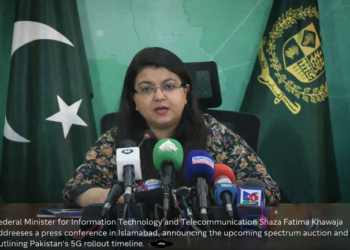A new survey has revealed that 89% of parents use gadgets to entertain or keep their children busy while traveling or to find some free time for themselves.
Global cybersecurity and digital privacy company Kaspersky said that more than half, or 53%, of children in the Middle East, Turkey and Africa (META) region get their first personal device, a smartphone or tablet, between the ages of three and seven.
The report further said that children themselves admitted that gadgets played an important role in their lives, with 78% saying they could not live without their gadgets.
Smartphones, tablets and game consoles are among the most desirable devices for children.
The cybersecurity agency said the widespread use of gadgets highlights the critical need for children to understand the risks they face online and how to mitigate them safely through appropriate device rules and guidelines.
However, nearly a quarter of respondents (22 percent) in the Meta region said they had not discussed internet safety rules with their children.
“This means that some children, who are often alone with their devices, are not always aware of how to behave safely while online,” the report said.
Saifullah Jadidi, head of consumer channels for Kaspersky in the Middle East, Turkey and Africa, said most parents give their children gadgets to entertain them, have some time for themselves or to calm them down.
“However, children should not use digital devices uncontrollably, but parents should better monitor their child’s digital life,” he said.
Saifullah Jadidi advised limiting screen time, educating children about digital security, and implementing parental controls, which allow parents and guardians to limit and monitor the content of websites their children access online.
“Controlling children’s online activities on the part of parents does not indicate their distrust of the child, it is a reasonable precaution with which you can, among other things, protect the device and the data on it,” he said.
Saifullah Jadidi added that through these controls, parents can restrict which websites their children can visit or which games they play. It also allows them to block file downloads, access content on undesirable topics, and prevent the disclosure of confidential information.

























